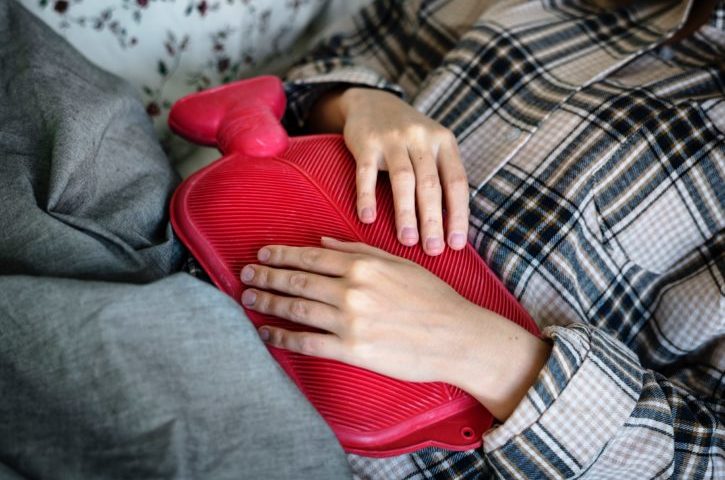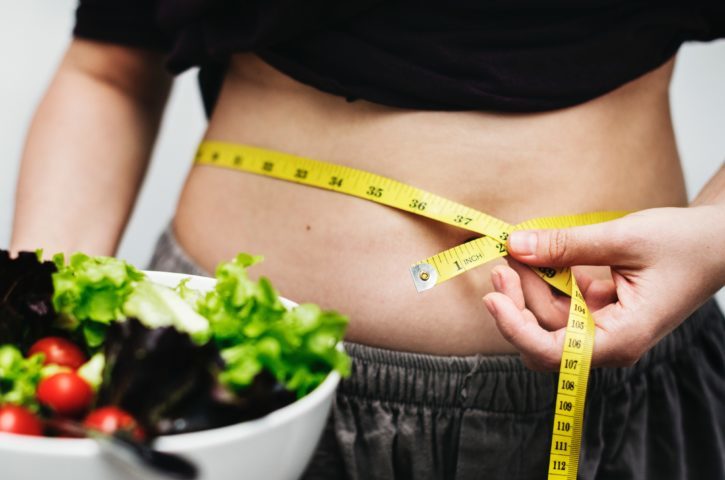Women’s Health
Offering health solutions and support to women
Simply Health Clinic UK offers a level of support to women, which is designed to help educate and get to the root cause of their female related health issues. It maybe the case that you have a received a diagnosis such as fibroids from a gynecologist and have been advised to have a hysterectomy or to take medication. You may not feel comfortable with what has been suggested and feel you would like to explore more options.
In most situations there are other options available and Paula an Alternative & Complementary Medicine Practitioner and accredited Naturopath trained in Naturopathic Medicine will guide you through those options in order to achieve the most beneficial treatment plan for you. It is important to know that Naturopathic Medicine and conventional medicine are not mutually exclusive and the use of integrated medicine can very much be a part of a women’s treatment plan depending on her health problems. However, a large proportion of women that have been treated at the clinic have experienced significant changes with the use of naturopathic medicine which includes but is not exclusive to clinical nutrition advice, detoxification, lifestyle changes and counselling without having to experience any invasive treatment.
The Simply Health Clinic UK approach to treating and supporting women is to not only get to the root of your health concern but also to educate and empower you in order to avoid the same health issues reoccurring. A vital part of female health is taking control and understanding what is happening with your body and in order to do that questions need to be asked and answered to achieve the right outcome for you as an individual and to avoid any pressured and reactive decisions being made.

Fibroids
Fibroids
Fibroids
Affecting one in five women over the age of 30, fibroids can cause heavy and painful periods as well as impacting on fertility. For some women, fibroids can be extremely painful and, in some cases, the bleeding can lead to anemia.
The medical term for fibroids is myomas. These are growths that are non- cancerous and grow in or on the muscular wall of the womb known as the myometrium. The numbers and sizes of fibroids can vary, some being as small as a pea and others can grow to the size of a seven or eight month old foetus.
Fibroids are given different names depending on where and how they grow:
- Submucosal fibroids grow on the inside of the womb and extend into the uterine cavity.
- Intramural fibroids grow within the uterine wall (the wall of the womb).
- Subserol fibroids grow on the outside of the womb, on the lining between the uterus and the pelvic cavity.
- Penduculated fibroids can be attached either to the inside or outside wall of the womb, and they are characterised by a stalk.
It is known that fibroids can affect 20% of women over the age of 30. They are not common in women under the age of 20 apart from women from Afro-Caribbean women who tend to be susceptible to the growth of fibroids even as teenagers. Fibroids seem to run in families but it has not yet been identified if this is genetic or purely down to lifestyle and diet.
What are the symptoms?
Fibroids tend to cause heavy periods due to their growth inside or outside of the uterine cavity compromising the mechanism that controls menstrual flow. The heavy bleeding maybe due to the fibroid making the womb bigger leading to a larger surface of area of womb lining that has to bleed each month. Also the pressure created due to the fibroid may disturb the natural blood flow resulting in heavier periods with no pain.
Some women do experience pain with fibroids — not necessarily intense period pains, but a feeling of pressure and a dragging sensation in the abdomen.
If fibroids are on stalks (pendiculated), they can twist, causing extreme pain. In some cases, the bleeding can be so severe that sufferers develop anaemia.
During menstruation, some women lose clots of blood that resemble pieces of liver. This is due the heavy blood flow which leads to the anti-clotting factors that are normally present in menstrual blood not having the ability to keep the blood flowing smoothly. Hence the pieces of clotted blood. Women can also experience periods that continue for weeks without a break between each period.
For many women, fibroids can be symptomless. If they grow in a way that doesn’t cause pressure on the neighbouring organs. It is possible live with even large fibroids for many years without requiring any medical help. In most cases, they shrink the menopause and post-menopause years.
In some cases the first indication that there may be fibroids is when there is trouble conceiving (infertility) or maintaining a pregnancy (miscarriage).
Many women will never know they have them, as they do not present any symptoms. The development of large fibroids can increase the size and change the shape of the womb, making it impossible for a fertilised egg to implant. Many women who have been treated for infertility may have perfectly normal cycles. They will not have even known that they were pregnant, because the fertilised egg would have been unable to attach itself to the lining of the uterus due to the presence of fibroids.
If fibroids press on other organs, such as the bladder or bowel, you may experience frequent urination, constipation or even backache.
Most women do experience some abdominal swelling, although it may be minor. In other women, the lower abdomen can look as though you are in the early stages of pregnancy.
What are your choices?
Diet can be crucial because it can help to control excess levels of oestrogen that can stimulate the growth of fibroids. If it is necessary for you to have surgical treatment because a fibroid is preventing conception, for example, then it is so important that you start eating well as soon as can, even before the surgery, in order to prevent a fibroid from regrowing after it has been removed.
Your liver
Your liver detoxifies harmful substances, such as toxins, waste products, drugs and alcohol. It also responsible for processing the hormones that your body produces so that they can’t cause you any harm. It is supposed to deactivate oestrogen, however, if your liver is compromised and function is not at its optimum level. You can develop an accumulation of oestrogen because it is not being eliminated from the body properly. This will then lead to fibroid growth.

Menopause
Menopause
Menopause
The cessation of periods is but one of the symptoms of the menopause and living well during this important time of a woman’s life is key to ensuring emotional and physical wellbeing.
At this stage in a woman’s life the menopause should not be perceived as a negative. It is not considered an illness and, instead, should be celebrated as, in reaching a huge milestone, a woman has gained wisdom and maturity and is in a strong position to guide others in their family unit; a valuable member of society.
What happens during the menopause?
A woman has approximately 2 million eggs from birth and, over the years, they are eventually used or die. When there is no longer a supply of eggs this is, what is referred to as, the menopause. The body then forces the production of eggs through ovulation by releasing the Follical Stimulating Hormone (FSH), which is the normal process in a normal monthly ovulation cycle. However, during menopause the body recognises that ovulation is not occurring and therefore increases the levels of FSH released.
At this stage in a woman’s life the production of oestrogen in the ovaries reduces. However, oestrogen production (oestrone) is also produced from the adrenal glands and from the fat cells, which compensates for the decline in the oestrogen levels in the ovaries.
What are the symptoms?
These will certainly be different for each woman and some may have more intense symptoms such as becoming soaked due to day and night sweats compared to others who may just experience the cessation of monthly blood flow.
Women may experience symptoms such as hot flushes, night sweats, vaginal dryness, mood swings, declining libido, osteoporosis, ageing skin, lack of energy, joint pains, weight gain, headaches, changes in hair quality, depression and anxiety.
What are your choices?
Generally, women that go to the doctors and discuss the main symptoms that have been outlined such as hot flushes and vaginal dryness tend to be offered HRT. This is because, if you are 45 plus and are experiencing such symptoms, it is assumed that it is due to hormones. However, this is not necessarily the case and, just because you are experiencing these symptoms, it does not mean you are menopausal as there are other health conditions that can present similar symptoms to those like the menopause. It is important to establish whether you are menopausal or not before moving forward with any prescribed drugs.
A natural approach to the menopause is a very good option and should be considered as it can aid with achieving optimum health in what can be a challenging time for some women. A plan would be devised to address dietary changes, which will allow the body to adapt during the hormonal changes (this will lead to oestrogen levels being maintained by the adrenal gland and fat cells).
Also, the use of hormones called phytoestrogens in the diet, which naturally occur in specific foods such as soya, have a balancing effect on hormones that are known to cause the development of symptoms such as hot flushes. Phytoestrogens also protects from heart disease, which is very important during the menopause.

Irregular Periods
Irregular Periods
Irregular Periods
Irregular periods is a strong indication that a female has an imbalance in hormonal function. This can present as a real problem for women when they trying to conceive and also for those that are unable to plan their schedules effectively without knowing when their period is due.
Irregular periods is a strong indication that a female has an imbalance in hormonal function. This can present as a real problem for women when they trying to conceive and also for those that are unable to plan their schedules effectively without knowing when their period is due.
What are irregular periods?
When experiencing irregular periods you will not know when you period is due to start. A woman’s cycle can range from 23 to 35 days and are considered regular if they start approximately the same time each cycle. Keeping track of irregular periods is extremely difficult.
What are the symptoms?
Small changes such as starting your period on day 25 one month and then day 35 on the following month would be quite common.
When experiencing more significant changes with an irregular cycle it would be best to seek further investigations so that other disorders such as polycystic ovary syndrome can be dismissed. Characteristics of irregular periods have been outlined below. You may only experience one or possibly a combination of all of these.
- Large gaps with no periods.
- Some gaps and then periods starting too regularly i.e ( two in one month).
- Gaps with no periods and then constant bleeding for a few weeks.
- Spotting between a period.
What are your choices?
Through the use of a natural approach to health your body has the ability to regain balance of your hormones. With use of the right treatment plan the body is able to re-establish balance as a result of ensuring you are well nourished by giving your body the necessary nutrients required.

Endometriosis
Endometriosis
Endometriosis
Characterised by tissue outside of the womb behaving like the skin lining of the uterus, endometriosis can present with many uncomfortable or painful symptoms. Pain during intercourse, difficulty getting pregnant and bleeding between periods are all signs of this chronic condition.

Unknown Infertility
Unknown Infertility
Unknown Infertility
There are many reasons for infertility many of which can be diagnosed by a general health practitioner but sometimes infertility can be unexplained. Lifestyle, diet and emotional health can all play a significant role in the success of fertility.
How to increase your chances of conceiving and preventing miscarriages
There are more couples seeking fertility treatments than ever before due to the increase in fertility problems over the last 20 years. Statistics show that one in six couples have difficulties conceiving and a quarter of pregnancies can result in a miscarriage.
What is the cause?
The following are the medical reasons given for infertility:
- Ovulatory failure (including Polycystic Ovary Syndrome)
- Tubal damage
- Endometriosis
- Male problems
- Unexplained
The most common cause of infertility is ‘unexplained’, meaning that after thorough investigations doctors can find no specific or identifiable medical problem at the root. This is where natural solutions can really support couples as it is clear there is something not right and it is necessary to look deeper into lifestyle factors and nutritional deficiencies as well emotional health.
What are your choices?
Research by the University of Surrey has identified that couples that struggled to conceive in the past changed their lifestyle, diet and took nutritional supplements, which resulted in an 80% success rate. This is a far greater than the success rate of 25% for IVF treatment.
Natural treatment plans are extensive and therefore need to be adapted to suit your individual needs in order to achieve balance and prepare your body for conception. Remember that it takes at least three months for immature eggs (oocytes) to mature enough to be released during ovulation. Three months is also the same time scale for sperm cells to develop, ready to be ejaculated. Therefore when you are trying to improve your fertility, you need to have a three-month period before conceiving. This is called ‘pre-conception care’ and it’s as important to take as much care during this period as it is during a pregnancy itself.
If you are going for IVF treatment or another assisted conception procedure, you should follow any recommendations made in order to give you the best possible chance for the procedure to work.
Diet
Finally a healthy diet is crucial to a successful pregnancy and a healthy baby however, many people are unaware of the fact that diet can help to correct hormone imbalances that maybe affecting your ability to conceive. It is important to know that there are also certain foods and drinks that are known to lower fertility. This is why education and guidance from a health care practitioner can be of great support to couples who may feel they are experiencing information overload, resulting in individuals feeling overwhelmed.

Painful Periods
Painful Periods
Painful Periods
Most women experience some discomfort during their period but for some the symptoms can be more severe. Painful periods – or dysmenorrhoea – can cause women to feel dizzy, experience nausea and develop sever headaches or diarrhoea.

Pre-Menstrual Tension
Pre-Menstrual Tension
Pre-Menstrual Tension PMT
Many women suffer with the symptoms brought about with hormonal changes that occur during the menstrual cycle but for some women pre-menstrual tension can be more challenging. Signs of PMT vary but include bloating, irritability, breast pain and loss of libido.

Breast Health
Breast Health
Breast Health
Regular screening for changes in your breasts is an essential part of good breast health. Changes such as lumps, discolouration, bleeding from the nipple, rashes or puckering of the skin could all indicate more serious issues such as cancer.

Absent Periods
Absent Periods
Absent Periods
Missing periods can be common when a female begins puberty and it takes a few months for her hormones to find their own pattern and also the same can be said for females heading towards the menopause. Having no periods during pregnancy and breastfeeding is perfectly natural, however, anything outside such natural causes and there has been no period for more than six months is not considered a natural occurrence.

Polycystic Ovary Syndrome
Polycystic Ovary Syndrome PCOS
Polycystic Ovary Syndrome PCOS
Thought to affect millions of woman in the UK, polycystic ovary syndrome can have a negative impact on women’s health affecting fertility, weight gain and increased hirsutism as well as acne, oily skin and hair loss from the scalp.
Polycystic ovary syndrome is not the same as having ovarian cysts. Polycystic ovaries are ovaries that are covered with very small follicles in which the egg develops.
What is polycystic ovary syndrome?
Follicles grow on the ovaries during each menstrual cycle. Eggs develop inside each follicle and when one matures more than the others it will then be released into the fallopian tubes, commonly known as ovulation. The rest of the follicles of which there can be hundreds degenerate. Polycystic ovaries the ovaries are bigger than normal and there a many under developed follicles that bunch together in a clump like grapes.
Polycystic ovaries do not cause much a problem for women and most of the time fertility is not compromised. They only become problematic when the cysts cause a hormonal imbalance, which then results in other symptoms. The symptoms are what clearly defines a woman that suffers with PCOS and a woman that has polycystic ovaries. Therefore a woman can have polycystic ovaries without having PCOS but all women with PCOS will have polycystic ovaries.
What symptoms could you experience?
Women experiencing extreme PCOS would tend to present the following:
- Overweight
- Have no or few periods.
- Acne.
- Unusual amount of body hair on the face, breast and inside the legs.
- Mood swings.
- Problems with fertility.
- Reoccuring miscarriages.
- Prone to develop diabetes due to blood sugar balance (7 times likely).
What are your choices?
It has been proven through research that nutritional approach to PCOS has a huge impact this condition. Also as weight loss occurs the hormones start to stablise and are rebalanced. Testosterone levels and serum insulin levels are reduced, SHBG levels increase and the PCOS symptoms disappear such as excessive hair growth due to the weight loss.
Along with the weight loss comes a transformation to effective ovarian function, leading to a increased rate of fertility.
Studies have shown that nutrition should be the first move for women who are overweight and failing to conceive.
It is known that women with high levels of luteinising hormone (LH) in the first half of their menstrual cycle appear to result in more miscarriages. This explains the likelihood of miscarriages in women with PCOS due to the hormonal imbalances and high level of LH. But, through effective nutrition the risk of miscarriage can be reduced to loosing weight and obtaining the nutrients required.

Heavy Periods
Heavy Periods
Heavy Periods
Heavy periods can be extremely disruptive and may cause painful cramping. Every woman is different and each period unique to them but heavy periods can lead to changes in lifestyle during the menstrual cycle.
Every woman’s periods are different, and it can be difficult to assess whether or not your bleeding is heavier than it should be. Through the use of laboratory analysis it has been identified what can be considered a ‘normal’ period in terms of blood loss. The average amount of blood loss is approximately 6-8 teaspoons (35ml), which is approximately ½ an eggcup, throughout the duration of a period. This can vary from woman to woman but this is a guide and can be used as a benchmark for an average woman in an average cycle.
Are your periods heavy?
Monitoring how frequently you have to change either a tampon or sanitary towel can assess this. If you are having to change every hour or less and you tend to leak at night in bed, this would be an indication that your period is heavier than the average woman.
Symptoms can sometimes be very extreme leading to loosing so much blood that some women describe flooding through their clothes whist sitting down or loosing blood which contains ‘liver’ like clots. This has a huge impact on a women’s life when experiencing this on a monthly basis and many are not able to function without being near to a toilet therefore having to schedule their daily lives around their periods.
This is when intervention is necessary, as the quality of a woman’s life will be clearly affected with such restrictions.
What are the symptoms?
You may experience cramping with heavy periods and other symptoms but sometimes no other symptoms are presented if the reason for heavy periods cannot be medically explained.
What are your choices?
There are many women experiencing heavy periods, who from a gynecological point view have nothing wrong with them the just seem to be loosing a significant amount of blood each month. This may as a result of the build up of excessive womb lining than needed, which is automatically shed each month. Another reason for abnormal blood flow could be due to the womb muscle lacking tone just like any other muscle in the body, which can lead to heavy bleeding.
Natural solutions to heavy periods can be beneficial when trying to ensure that your hormones are balanced. If you have too much oestrogen production in your body the lining of the womb can build up more than normal. This can be addressed through prescriptive nutrition and supplementation in the shorter term which will support woman who are in the areas where they are very nutrient deficient and also address the hormones that are out of balance which maybe the cause of heavy bleeding.

Weight Management
Weight Management
Weight Management
Maintaining a healthy weight is not only about looking good but also feeling good from the inside out. Being overweight or underweight can play an important factor in the development of serious health issues such as heart problems, diabetes and a diminished immune system.
Can’t find what you’re looking for?
If you want to book an appointment or have questions you’d like answered, don’t hesitate to get in touch.